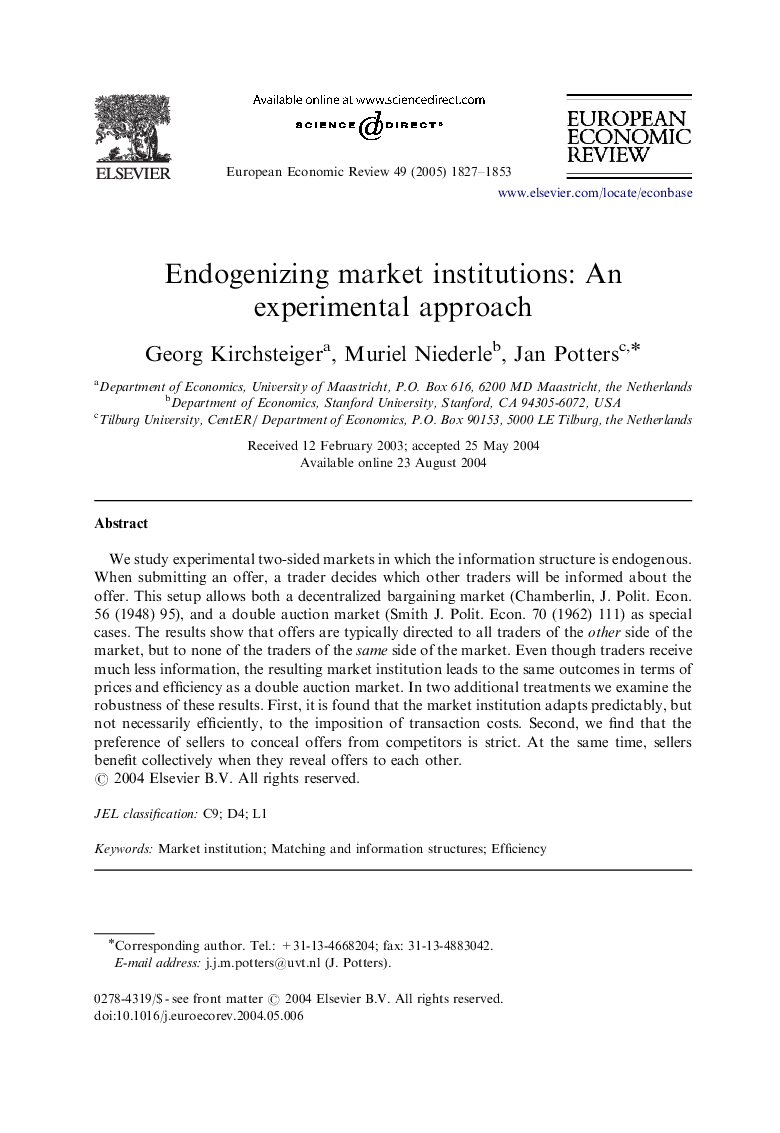| Article ID | Journal | Published Year | Pages | File Type |
|---|---|---|---|---|
| 9550834 | European Economic Review | 2005 | 27 Pages |
Abstract
We study experimental two-sided markets in which the information structure is endogenous. When submitting an offer, a trader decides which other traders will be informed about the offer. This setup allows both a decentralized bargaining market (Chamberlin, J. Polit. Econ. 56 (1948) 95), and a double auction market (Smith J. Polit. Econ. 70 (1962) 111) as special cases. The results show that offers are typically directed to all traders of the other side of the market, but to none of the traders of the same side of the market. Even though traders receive much less information, the resulting market institution leads to the same outcomes in terms of prices and efficiency as a double auction market. In two additional treatments we examine the robustness of these results. First, it is found that the market institution adapts predictably, but not necessarily efficiently, to the imposition of transaction costs. Second, we find that the preference of sellers to conceal offers from competitors is strict. At the same time, sellers benefit collectively when they reveal offers to each other.
Keywords
Related Topics
Social Sciences and Humanities
Economics, Econometrics and Finance
Economics and Econometrics
Authors
Georg Kirchsteiger, Muriel Niederle, Jan Potters,
